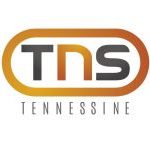Porous Media Centers/Laboratories
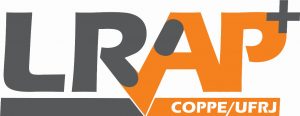 LRAP – The Laboratory of Advanced Oil Recovery (LRAP) at COPPE/UFRJ is a multidisciplinary research centre dedicated to developing technologies applied to the oil, gas, and energy industries. In addition to optimizing hydrocarbon extraction through enhanced recovery methods, the laboratory conducts research in areas such as geological CO₂ storage, zeolites for selective gas capture use, and projects related to hydrology and agriculture. Equipped with cutting-edge technology, LRAP promotes innovations aimed at sustainability and energy efficiency, contributing to the training of highly qualified professionals and maintaining strategic partnerships with industry leaders.
LRAP – The Laboratory of Advanced Oil Recovery (LRAP) at COPPE/UFRJ is a multidisciplinary research centre dedicated to developing technologies applied to the oil, gas, and energy industries. In addition to optimizing hydrocarbon extraction through enhanced recovery methods, the laboratory conducts research in areas such as geological CO₂ storage, zeolites for selective gas capture use, and projects related to hydrology and agriculture. Equipped with cutting-edge technology, LRAP promotes innovations aimed at sustainability and energy efficiency, contributing to the training of highly qualified professionals and maintaining strategic partnerships with industry leaders.
LRAP – COPPE-UFRJ https://www.lrap.coppe.ufrj.br/
Contact: Prof. Paulo Couto pcouto@petroleo.ufrj.br _____________________________________________________________________________________________________________________________________
 LEAR – High-Resolution NMR Laboratory at the São Carlos Institute of Physics, University of São Paulo (USP), is dedicated to research using Nuclear Magnetic Resonance (NMR) techniques. LEAR, an acronym in Portuguese for “Laboratório de Espectroscopia de Alta Resolução por RMN”, is mostly focused on studies related to Porous Media, Oil & Cement Science, as well as Carbon Capture, Utilization, & Storage (CCUS). The research projects are enhanced by the use of complementary methods, including 3D X-ray Microscopy, Petrophysical Techniques, and Computational Physics Methods. LEAR is equipped with several superconductors, resistive, and permanent magnets, as well as both homemade and commercial NMR equipment and accessories, enabling comprehensive and advanced research in the field of Porous Media.
LEAR – High-Resolution NMR Laboratory at the São Carlos Institute of Physics, University of São Paulo (USP), is dedicated to research using Nuclear Magnetic Resonance (NMR) techniques. LEAR, an acronym in Portuguese for “Laboratório de Espectroscopia de Alta Resolução por RMN”, is mostly focused on studies related to Porous Media, Oil & Cement Science, as well as Carbon Capture, Utilization, & Storage (CCUS). The research projects are enhanced by the use of complementary methods, including 3D X-ray Microscopy, Petrophysical Techniques, and Computational Physics Methods. LEAR is equipped with several superconductors, resistive, and permanent magnets, as well as both homemade and commercial NMR equipment and accessories, enabling comprehensive and advanced research in the field of Porous Media.
LEAR – IFSC-USP https://ifsc-lear.weebly.com/
Contact: Prof. Tito José Bonagamba tito@ifsc.usp.br _____________________________________________________________________________________________________________________________________
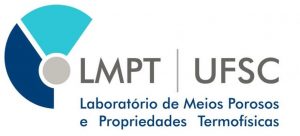 LMPT – Laboratory of Porous Media and Thermophysical Properties from the Engineering Mechanical Department-UFSC. LMPT develops fundamental and applied research on several sorts of porous media. The lab facility enables one to perform microstructural characterization aiming to study and find solutions in the fields of agriculture, oil and gas, hydrological basins, civil construction, industry, biomaterials, membranes, and so on. It is provided with a high-resolution X-ray microtomography scanner, mercury intrusion porosimeter, core tests permeameter, and a laser ablation machining system.
LMPT – Laboratory of Porous Media and Thermophysical Properties from the Engineering Mechanical Department-UFSC. LMPT develops fundamental and applied research on several sorts of porous media. The lab facility enables one to perform microstructural characterization aiming to study and find solutions in the fields of agriculture, oil and gas, hydrological basins, civil construction, industry, biomaterials, membranes, and so on. It is provided with a high-resolution X-ray microtomography scanner, mercury intrusion porosimeter, core tests permeameter, and a laser ablation machining system.
LMPT – EMC-UFSC https://lmpt.paginas.ufsc.br/
Contact: Prof. Celso Peres Fernandes celso@lmpt.ufsc.br _____________________________________________________________________________________________________________________________________
 PORO – Porous Media Research Group consists of two laboratories: LabCC, the Scientific Computation Laboratory (Laboratório de Computação Científica), and LabMicro, the Microfluidics Laboratory (Laboratório de Microfluídica). The PORO group applies lab-on-a-chip technology and numerical simulations, such as the Lattice Boltzmann Method (LBM), to research fluid flow issues.
PORO – Porous Media Research Group consists of two laboratories: LabCC, the Scientific Computation Laboratory (Laboratório de Computação Científica), and LabMicro, the Microfluidics Laboratory (Laboratório de Microfluídica). The PORO group applies lab-on-a-chip technology and numerical simulations, such as the Lattice Boltzmann Method (LBM), to research fluid flow issues.
PORO – EMB-UFSC https://poro.ufsc.br/
Contact: Prof. Fabiano G. Wolf fabiano.wolf@ufsc.br _____________________________________________________________________________________________________________________________________
 MICDIGI – The Digital Microscopy and Image Analysis Research Group works in the area of digital image processing and analysis, generally applied to the 2D and 3D characterization of materials through microscopy and tomography techniques. Using commercial and free software, it develops specific routines to quantify microstructural characteristics automatically. The Group manages its equipment in the form of a Multiuser Center, meeting the demands of PUC-Rio departments and PPGs, other universities in Rio de Janeiro (UERJ, UFF, among others), in Brazil (UFRGS, UFPR, among others) and research centers (CETEM, CENPES, among others). others). Interested parties should message Dr. Marcos Henrique de Pinho Mauricio. Created in 1988, it is part of the Department of Chemical and Materials Engineering (DEQM) at PUC-Rio. It is formed by professors, researchers, undergraduate and graduate students, and technicians. The Group is a national reference in its activity area, meeting the research needs of several departments of PUC-Rio (DEQM, MEC, CIV, FIS, QUI), several universities, and research institutes. In addition, it offers training and development of solutions for companies such as Vale, Usiminas, Petrobras, Gerdau, Samarco, and Oxiteno.
MICDIGI – The Digital Microscopy and Image Analysis Research Group works in the area of digital image processing and analysis, generally applied to the 2D and 3D characterization of materials through microscopy and tomography techniques. Using commercial and free software, it develops specific routines to quantify microstructural characteristics automatically. The Group manages its equipment in the form of a Multiuser Center, meeting the demands of PUC-Rio departments and PPGs, other universities in Rio de Janeiro (UERJ, UFF, among others), in Brazil (UFRGS, UFPR, among others) and research centers (CETEM, CENPES, among others). others). Interested parties should message Dr. Marcos Henrique de Pinho Mauricio. Created in 1988, it is part of the Department of Chemical and Materials Engineering (DEQM) at PUC-Rio. It is formed by professors, researchers, undergraduate and graduate students, and technicians. The Group is a national reference in its activity area, meeting the research needs of several departments of PUC-Rio (DEQM, MEC, CIV, FIS, QUI), several universities, and research institutes. In addition, it offers training and development of solutions for companies such as Vale, Usiminas, Petrobras, Gerdau, Samarco, and Oxiteno.
MICDIGI – PUC-RIO micdigi.deqm.puc-rio.br
Contact: Prof. Sidnei Paciornik sidnei@puc-rio.br _____________________________________________________________________________________________________________________________________
 LMMP – The Laboratory of Microhydrodynamics and Flow in Porous Media (LMMP/PUC-Rio) is focused on fundamental and applied research of free surface flows of complex liquids in microscale. Such flows occur in many natural and industrial processes, such as in the manufacturing of functional films, complex fluid displacement inside small channels and porous materials, flow of emulsions and dispersions and multiphase flow in microchannels. Capillary effects are usually very important and the presence of fluid interfaces and complex mechanical behavior lead to strong nonlinearities in the flow. We combine theoretical, numerical and experimental tools in the analyses. The research projects are focused on five main application areas: Coating process, microencapsulation, enhanced oil recovery, underground CO2 storage and emulsion formation and stability. Particularly in the area of flow through porous media, the research expands the different scales of the problem, from reservoir scale, and plug scale to pore-scale, where the relevant physics that governs the flow occurs. The laboratory has state-of-the-art fluid characterization, core flooding and microfluidics setups that enable experiments up to 15,000 psi. Our current porous media research projects are focused on EOR by gas injection at HPHT conditions, by o-w emulsion injection, and by polymer injection; CO2 storage in saline aquifers; reservoir characterization and flow apportionment by using pressure and temperature data during well tests and production; and analysis of scale inhibitor squeeze treatment.
LMMP – The Laboratory of Microhydrodynamics and Flow in Porous Media (LMMP/PUC-Rio) is focused on fundamental and applied research of free surface flows of complex liquids in microscale. Such flows occur in many natural and industrial processes, such as in the manufacturing of functional films, complex fluid displacement inside small channels and porous materials, flow of emulsions and dispersions and multiphase flow in microchannels. Capillary effects are usually very important and the presence of fluid interfaces and complex mechanical behavior lead to strong nonlinearities in the flow. We combine theoretical, numerical and experimental tools in the analyses. The research projects are focused on five main application areas: Coating process, microencapsulation, enhanced oil recovery, underground CO2 storage and emulsion formation and stability. Particularly in the area of flow through porous media, the research expands the different scales of the problem, from reservoir scale, and plug scale to pore-scale, where the relevant physics that governs the flow occurs. The laboratory has state-of-the-art fluid characterization, core flooding and microfluidics setups that enable experiments up to 15,000 psi. Our current porous media research projects are focused on EOR by gas injection at HPHT conditions, by o-w emulsion injection, and by polymer injection; CO2 storage in saline aquifers; reservoir characterization and flow apportionment by using pressure and temperature data during well tests and production; and analysis of scale inhibitor squeeze treatment.
LMMP – PUC-RIO http://lmmp.mec.puc-rio.br/ ttps://www.linkedin.com/company/35463627/admin/dashboard/
Contact: Prof. Márcio Carvalho msc@puc-rio.br _____________________________________________________________________________________________________________________________________
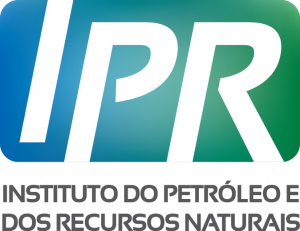 LGP – The Laboratory of Geochemistry and Petrophysics of the Institute of Petroleum and Natural Resources (IPR) at PUCRS is equipped for special petrophysical characterization of reservoir rocks, performing measurements of porosity, absolute and relative permeability (oil-water or oil-gas) and capillary pressure tests, being accredited on the ISO/IEC 17025 for porosity and permeability testing. The laboratory also develops experimental and numerical modeling of geochemical processes with a focus on characterization, formation and alterations of oil&gas reservoirs and potential reservoirs for CO2 storage, using specialized laboratory equipment for fluid-rock interactions studies under subsurface conditions, in addition to advanced tools for geochemical modeling and simulations of flow and reactive transport in porous media.
LGP – The Laboratory of Geochemistry and Petrophysics of the Institute of Petroleum and Natural Resources (IPR) at PUCRS is equipped for special petrophysical characterization of reservoir rocks, performing measurements of porosity, absolute and relative permeability (oil-water or oil-gas) and capillary pressure tests, being accredited on the ISO/IEC 17025 for porosity and permeability testing. The laboratory also develops experimental and numerical modeling of geochemical processes with a focus on characterization, formation and alterations of oil&gas reservoirs and potential reservoirs for CO2 storage, using specialized laboratory equipment for fluid-rock interactions studies under subsurface conditions, in addition to advanced tools for geochemical modeling and simulations of flow and reactive transport in porous media.
LGP – PUC-RS https://www.pucrs.br/ipr-en/laboratorios/geochemistry-and-petrophysics-laboratory/
Contact: Prof. Rodrigo Sebastian Iglesias rodrigo.iglesias@pucrs.br _____________________________________________________________________________________________________________________________________
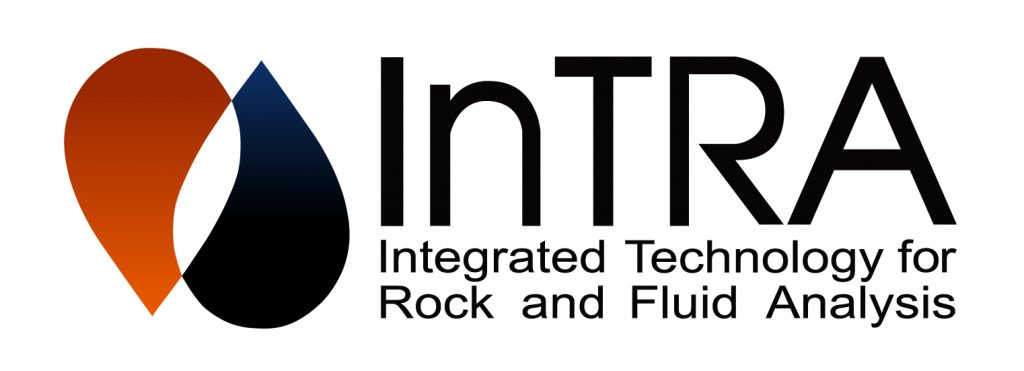 InTRA – InTRA is a multi-user research center located at the Escola Politécnica of the University of São Paulo (USP), accredited by CNPq and ANP, specializing in interdisciplinary science and technology. Focusing on rock-fluid interactions and digital transformation, InTRA combines innovation with scientific rigor to deliver high-quality research, while also contributing to human resource development through education and industry collaboration. Research and Activities; InTRA is dedicated to advanced research on phenomena related to the characterization of rocks and fluids for the mineral and energy industries. The main research areas include; a) Rock Sample Characterization: Analyzing chemical and mineralogical composition, pore size distribution, density, granulometric properties, and using 3D X-ray imaging to study rock structure (LCT Laboratory), b) Core Analysis: i) Basic Core Analysis: Measures porosity, permeability, and pore volume to assess reservoir quality; ii) Special Core Analysis: Studies wettability under reservoir conditions to better understand fluid-rock interactions, iii) Fluid Analysis: Characterizes the chemical properties of oil, evaluates the Total Acid Number (TAN), identifies organic compounds, measures chloride concentrations in brines, and tests asphaltene inhibitors to prevent blockages, and iv) Digital Transformation: InTRA integrates digital technologies into its research through the application of machine learning and deep learning algorithms to analyze, cluster, classify, and predict rock-fluid phenomena. The research center also explores the use of self-organizing systems to model complex processes in rock behaviour, enabling more accurate predictions and enhancing decision-making for the mineral and energy industries. Innovation and Collaboration; InTRA operates cutting-edge technologies and analytical equipment, working closely with industry partners to develop new techniques for enhancing oil recovery, improving well integrity, and predicting reservoir behaviours. The lab also plays a key role in training future professionals and supporting the development of expertise in the mineral and energy sector.
InTRA – InTRA is a multi-user research center located at the Escola Politécnica of the University of São Paulo (USP), accredited by CNPq and ANP, specializing in interdisciplinary science and technology. Focusing on rock-fluid interactions and digital transformation, InTRA combines innovation with scientific rigor to deliver high-quality research, while also contributing to human resource development through education and industry collaboration. Research and Activities; InTRA is dedicated to advanced research on phenomena related to the characterization of rocks and fluids for the mineral and energy industries. The main research areas include; a) Rock Sample Characterization: Analyzing chemical and mineralogical composition, pore size distribution, density, granulometric properties, and using 3D X-ray imaging to study rock structure (LCT Laboratory), b) Core Analysis: i) Basic Core Analysis: Measures porosity, permeability, and pore volume to assess reservoir quality; ii) Special Core Analysis: Studies wettability under reservoir conditions to better understand fluid-rock interactions, iii) Fluid Analysis: Characterizes the chemical properties of oil, evaluates the Total Acid Number (TAN), identifies organic compounds, measures chloride concentrations in brines, and tests asphaltene inhibitors to prevent blockages, and iv) Digital Transformation: InTRA integrates digital technologies into its research through the application of machine learning and deep learning algorithms to analyze, cluster, classify, and predict rock-fluid phenomena. The research center also explores the use of self-organizing systems to model complex processes in rock behaviour, enabling more accurate predictions and enhancing decision-making for the mineral and energy industries. Innovation and Collaboration; InTRA operates cutting-edge technologies and analytical equipment, working closely with industry partners to develop new techniques for enhancing oil recovery, improving well integrity, and predicting reservoir behaviours. The lab also plays a key role in training future professionals and supporting the development of expertise in the mineral and energy sector.
Through its commitment to research, innovation, and collaboration, InTRA significantly contributes to advancing rock and fluid sciences.
InTRA – Poli-USP http://www.usp.br/intras/ https://uspmulti.prp.usp.br/centrais/dashboard/66
Contact: Prof. Cleyton Carneiro intra@usp.br _____________________________________________________________________________________________________________________________________
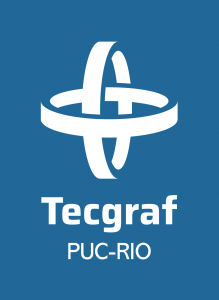 TECGRAF – Tecgraf Institute has a team of approximately 350 collaborators and researchers, including professors, PhDs, masters, undergraduate and graduate students (PhD and master’s). Currently, Tecgraf/PUC-Rio develops around 40 computational systems and various foundational technologies such as frameworks, libraries, and APIs. The projects developed by the highly specialized professionals span across the areas of expertise. With extensive experience in applying these areas of expertise to software development for the Oil and Gas industry, Digital Entertainment, Medicine, and Military applications, the Institute has the potential to expand its fields of operation. One of the main areas of expertise is Modeling and Simulation, which involves geometric modelling, digital professional models, mesh generation, multiphysics simulation, FEM, FVM, DEM software, multiscale modelling, distributed computing, HPC (high-performance computing), clusters, and grids.
TECGRAF – Tecgraf Institute has a team of approximately 350 collaborators and researchers, including professors, PhDs, masters, undergraduate and graduate students (PhD and master’s). Currently, Tecgraf/PUC-Rio develops around 40 computational systems and various foundational technologies such as frameworks, libraries, and APIs. The projects developed by the highly specialized professionals span across the areas of expertise. With extensive experience in applying these areas of expertise to software development for the Oil and Gas industry, Digital Entertainment, Medicine, and Military applications, the Institute has the potential to expand its fields of operation. One of the main areas of expertise is Modeling and Simulation, which involves geometric modelling, digital professional models, mesh generation, multiphysics simulation, FEM, FVM, DEM software, multiscale modelling, distributed computing, HPC (high-performance computing), clusters, and grids.
TECGRAF – PUC-RIO https://www.tecgraf.puc-rio.br
Contact: Profa. Deane Roehl deane@tecgraf.puc-rio.br _____________________________________________________________________________________________________________________________________
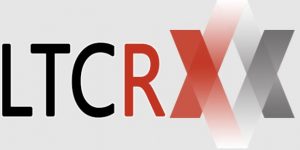 LTC-RX – The X-Ray Computed Tomography Laboratory of the Department of Nuclear Energy (DEN) at the Federal University of Pernambuco (UFPE) was established in 2010 as a strategic initiative by UFPE to strengthen partnerships with educational institutions, research centers, and the industrial and productive sectors. LTC-RX is a multidisciplinary and multi-user laboratory that provides researchers from UFPE and across Brazil access to an X-ray inspection system using an industrial tomograph, model XTH225 ST (Nikon Metrology, Inc.), acquired through the Public Call MCT/FINEP/CT-INFRA-PROINFRA 01/2009. The laboratory supports multidisciplinary research projects in fields such as Engineering, Exact Sciences, Agricultural Sciences, Humanities, Biological, and Health Sciences. Its infrastructure facilitates the development of detailed analyses, non-destructive testing, and the generation of high-resolution 3D images, benefiting researchers and companies in the characterization of materials and the advancement of technological knowledge, ranging from Material Characterization to Electronic Component Inspection, Quality Control in Automotive Parts, and Research in Geosciences and Geotechnologies. Our team can reveal the internal structure of materials, identifying composition, porosity, and hidden defects, which is crucial for developing innovative and high-quality products. In 2025, a new X-ray computed tomography system, with higher capabilities and energy levels than the current one, will also be acquired through FINEP under PROINFRA 2023, allowing for even more precise and detailed analyses, expanding the laboratory’s application range and enhancing its support capacity for research and technological innovation in Brazil.
LTC-RX – The X-Ray Computed Tomography Laboratory of the Department of Nuclear Energy (DEN) at the Federal University of Pernambuco (UFPE) was established in 2010 as a strategic initiative by UFPE to strengthen partnerships with educational institutions, research centers, and the industrial and productive sectors. LTC-RX is a multidisciplinary and multi-user laboratory that provides researchers from UFPE and across Brazil access to an X-ray inspection system using an industrial tomograph, model XTH225 ST (Nikon Metrology, Inc.), acquired through the Public Call MCT/FINEP/CT-INFRA-PROINFRA 01/2009. The laboratory supports multidisciplinary research projects in fields such as Engineering, Exact Sciences, Agricultural Sciences, Humanities, Biological, and Health Sciences. Its infrastructure facilitates the development of detailed analyses, non-destructive testing, and the generation of high-resolution 3D images, benefiting researchers and companies in the characterization of materials and the advancement of technological knowledge, ranging from Material Characterization to Electronic Component Inspection, Quality Control in Automotive Parts, and Research in Geosciences and Geotechnologies. Our team can reveal the internal structure of materials, identifying composition, porosity, and hidden defects, which is crucial for developing innovative and high-quality products. In 2025, a new X-ray computed tomography system, with higher capabilities and energy levels than the current one, will also be acquired through FINEP under PROINFRA 2023, allowing for even more precise and detailed analyses, expanding the laboratory’s application range and enhancing its support capacity for research and technological innovation in Brazil.
LTC-RX – DEN-UFPE https://www.ltcrx-ufpe.com.br/
Contact: LTC-RX ltc.den@ufpe.br _____________________________________________________________________________________________________________________________________
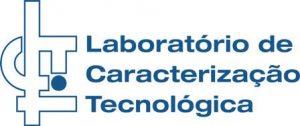 LCT – LCT is a National Multi-User Center linked to the Department of Mining and Petroleum Engineering at the Polytechnic School of USP. Since its establishment in 1990, it has focused on studies and research in the area of technological characterization of raw materials. Its infrastructure, combined with the experience gained from R&D projects, academic activities (undergraduate, master’s, and doctoral programs), and university outreach, equips the LCT with the competence to address the challenges in the mineral, metallurgical, materials, petroleum industries, and related fields, positioning it as a research center of excellence and center for human resource development.
LCT – LCT is a National Multi-User Center linked to the Department of Mining and Petroleum Engineering at the Polytechnic School of USP. Since its establishment in 1990, it has focused on studies and research in the area of technological characterization of raw materials. Its infrastructure, combined with the experience gained from R&D projects, academic activities (undergraduate, master’s, and doctoral programs), and university outreach, equips the LCT with the competence to address the challenges in the mineral, metallurgical, materials, petroleum industries, and related fields, positioning it as a research center of excellence and center for human resource development.
LCT – Poli-USP http://www.lct.poli.usp.br
Contact: LCT lct@lct.poli.usp.br _____________________________________________________________________________________________________________________________________
 POLIPLUGS – Poliplugs is a startup focused on the research and commercialization of tailor-made synthetic rock plugs with controlled physical and chemical properties. These synthetic plugs can be applied, for example, in the petroleum industry, where controlled samples with known properties are necessary, as well as for the calibration of equipment.
POLIPLUGS – Poliplugs is a startup focused on the research and commercialization of tailor-made synthetic rock plugs with controlled physical and chemical properties. These synthetic plugs can be applied, for example, in the petroleum industry, where controlled samples with known properties are necessary, as well as for the calibration of equipment.
POLIPLUGS https://sites.usp.br/poliplugs/
Contact: Dr. Jhonatan Jair Arismendi Flórez jhonatanarismendi@usp.br _____________________________________________________________________________________________________________________________________
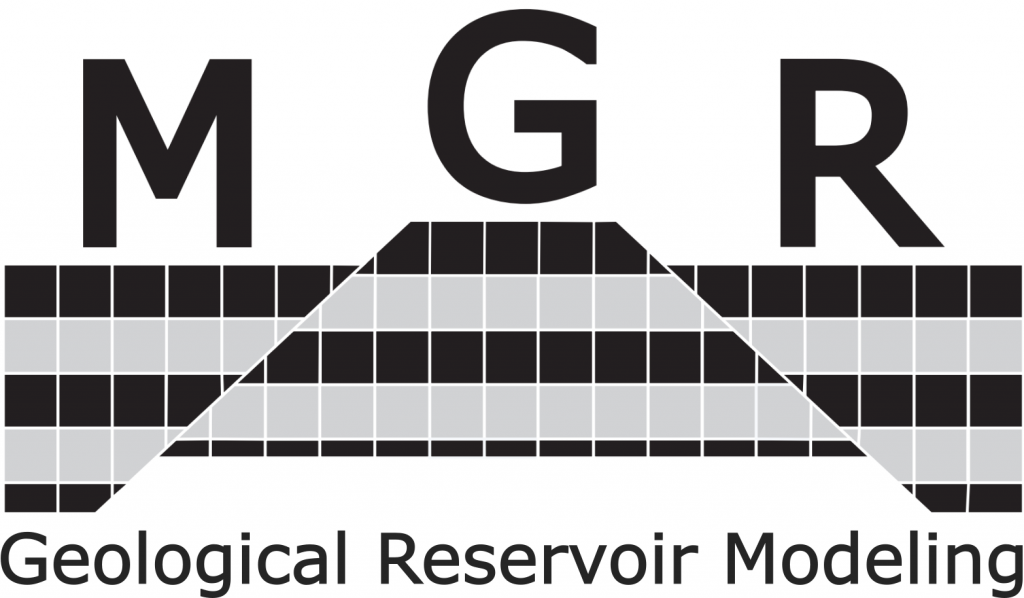 MGR – The laboratory was created in 2009, with the group’s participation in Petrobras’ CARMOD research network, through the R&D project “Modeling of dynamic parameters in reservoir characterization” (2009-2012). This project allowed the formation of a research group and the creation of the “Reservoir Geological Modeling Laboratory – MGR”, associated with CEPETRO. The laboratory currently has computational infrastructure and specific software designed for reservoir characterization. This has enabled the execution of tasks compatible with what is done in the industry.
MGR – The laboratory was created in 2009, with the group’s participation in Petrobras’ CARMOD research network, through the R&D project “Modeling of dynamic parameters in reservoir characterization” (2009-2012). This project allowed the formation of a research group and the creation of the “Reservoir Geological Modeling Laboratory – MGR”, associated with CEPETRO. The laboratory currently has computational infrastructure and specific software designed for reservoir characterization. This has enabled the execution of tasks compatible with what is done in the industry.
MGR – CEPETRO-UNICAMP
https://www.linkedin.com/company/laboratorio-de-modelagem-geologica-de-reservatorios-mgr
Contact: Prof. Alexandre Campane Vidal vidal@unicamp.br
_____________________________________________________________________________________________________________________________________
 COMOPORE – The mission of the COMOPORE group (Computational Modelling of Porous Materials) is the development and implementation of new multi-scale computational models to describe the hydro-mechanical coupling in processes related to hydrocarbon prospecting in petroleum reservoirs, as well as the construction of computational tools to integrate fine scale information in commercial simulators used by industry.
COMOPORE – The mission of the COMOPORE group (Computational Modelling of Porous Materials) is the development and implementation of new multi-scale computational models to describe the hydro-mechanical coupling in processes related to hydrocarbon prospecting in petroleum reservoirs, as well as the construction of computational tools to integrate fine scale information in commercial simulators used by industry.
COMOPORE – LNCC https://comopore.lncc.br/
Contact: Prof. Marcio Arab Murad murad@lncc.br
_____________________________________________________________________________________________________________________________________
 LAMAP – Laboratory of Applied Mathematics is an interdisciplinary research laboratory inaugurated in 2016 and focusing on mathematical and computational modelling of complex flows in porous media. The main focus is on partial differential equation analytical solutions, accurate numerical simulations, uncertainty quantification, and sensitivity analysis.
LAMAP – Laboratory of Applied Mathematics is an interdisciplinary research laboratory inaugurated in 2016 and focusing on mathematical and computational modelling of complex flows in porous media. The main focus is on partial differential equation analytical solutions, accurate numerical simulations, uncertainty quantification, and sensitivity analysis.
LAMAP – UFJF http://lamap.ufjf.br/
Contact: Prof. Grigori Chapiro grigori@ice.ufjf.br
_____________________________________________________________________________________________________________________________________
 LABRES – The Petroleum Reservoir Engineering Laboratory at the Federal University of Rio Grande do Norte (UFRN) is a prominent centre for research and innovation in the field of petroleum reservoir engineering. Founded in 2017, the laboratory is dedicated to advancing techniques for optimizing oil and gas production through both scientific investigation and practical applications. Its infrastructure supports a wide range of activities, including research on porous media flow, especially enhanced oil recovery methods, and reservoir stimulation. LABRES focuses on key areas such as petrophysical analysis, CO2 geological storage, and the development of chemical formulations for well-stimulation and enhanced oil recovery, as well as formation damage studies. The laboratory is committed to addressing real-world challenges in the oil and gas industry. Its work extends beyond research, offering specialized services and technical support to industry partners while also providing hands-on training for students.
LABRES – The Petroleum Reservoir Engineering Laboratory at the Federal University of Rio Grande do Norte (UFRN) is a prominent centre for research and innovation in the field of petroleum reservoir engineering. Founded in 2017, the laboratory is dedicated to advancing techniques for optimizing oil and gas production through both scientific investigation and practical applications. Its infrastructure supports a wide range of activities, including research on porous media flow, especially enhanced oil recovery methods, and reservoir stimulation. LABRES focuses on key areas such as petrophysical analysis, CO2 geological storage, and the development of chemical formulations for well-stimulation and enhanced oil recovery, as well as formation damage studies. The laboratory is committed to addressing real-world challenges in the oil and gas industry. Its work extends beyond research, offering specialized services and technical support to industry partners while also providing hands-on training for students.
LABRES – DPET – UFRN br.linkedin.com/in/labres www.instagram.com/labres.ufrn/?hl=en
Contact: Prof. Marcos Allyson Felipe Rodrigues marcos.felipe@ufrn.br
_____________________________________________________________________________________________________________________________________
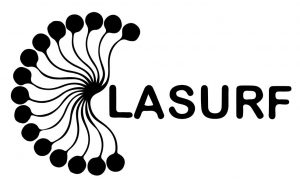 LASURF – The Laboratory of Physical Chemistry of Surfactants (LASURF) at PUC-Rio focuses on the interactions and organization of surfactants, polymers, and nanoparticles in solution and at interfaces. With cutting-edge infrastructure, the laboratory develops innovative analytical methods for characterizing colloidal systems in complex fluids. A key area of research is the development of stable CO₂ foams for carbon capture and storage (CCS) and enhanced oil recovery (EOR), particularly under high-pressure, high-temperature (HPHT) conditions. In addition to this, LASURF conducts extensive research on the dynamics of fluid flow in porous media. Using techniques such as routine core analysis (RCAL), core-flooding and microfluidics, the laboratory investigates fluid behaviour at both the micro and core scales, contributing to a more thorough understanding of flow mechanisms at the upscale reservoir level. The laboratory also explores the use of thermoresponsive polymers for polymer flooding, offering sustainable alternatives for enhanced oil recovery by reducing chemical consumption. Beyond its research, LASURF is committed to the education and training of undergraduate and graduate students, providing them with hands-on experience, in innovative research methodologies. Furthermore, the laboratory is actively engaged in collaborative research with industry partners, focused on developing practical solutions to address real-world challenges in the industry.
LASURF – The Laboratory of Physical Chemistry of Surfactants (LASURF) at PUC-Rio focuses on the interactions and organization of surfactants, polymers, and nanoparticles in solution and at interfaces. With cutting-edge infrastructure, the laboratory develops innovative analytical methods for characterizing colloidal systems in complex fluids. A key area of research is the development of stable CO₂ foams for carbon capture and storage (CCS) and enhanced oil recovery (EOR), particularly under high-pressure, high-temperature (HPHT) conditions. In addition to this, LASURF conducts extensive research on the dynamics of fluid flow in porous media. Using techniques such as routine core analysis (RCAL), core-flooding and microfluidics, the laboratory investigates fluid behaviour at both the micro and core scales, contributing to a more thorough understanding of flow mechanisms at the upscale reservoir level. The laboratory also explores the use of thermoresponsive polymers for polymer flooding, offering sustainable alternatives for enhanced oil recovery by reducing chemical consumption. Beyond its research, LASURF is committed to the education and training of undergraduate and graduate students, providing them with hands-on experience, in innovative research methodologies. Furthermore, the laboratory is actively engaged in collaborative research with industry partners, focused on developing practical solutions to address real-world challenges in the industry.
LASURF – PUC-RIO https://www.lasurf-rio.com/
Contact: Prof. Aurora Pérez Gramatges aurora@puc-rio.br _____________________________________________________________________________________________________________________________________
 BIOCERAM – The Laboratory of Bioceramics is part of the Institute of Science and Technology at the Federal University of São Paulo, located on the São José dos Campos/SP campus. The lab focuses on the fabrication of porous ceramic and composite materials (scaffolds) using both traditional methods and additive manufacturing technologies for tissue engineering applications. Additionally, BIOCERAM is committed to training highly qualified undergraduate and graduate students and fostering strategic partnerships with the industrial sector. The laboratory is equipped with advanced instrumentation, enabling researchers to synthesize, process, and characterize porous materials with precision and efficiency.
BIOCERAM – The Laboratory of Bioceramics is part of the Institute of Science and Technology at the Federal University of São Paulo, located on the São José dos Campos/SP campus. The lab focuses on the fabrication of porous ceramic and composite materials (scaffolds) using both traditional methods and additive manufacturing technologies for tissue engineering applications. Additionally, BIOCERAM is committed to training highly qualified undergraduate and graduate students and fostering strategic partnerships with the industrial sector. The laboratory is equipped with advanced instrumentation, enabling researchers to synthesize, process, and characterize porous materials with precision and efficiency.
Bioceram – ICT/UNIFESP https://bioceram.wixsite.com/bioceram
Contact: Profa. Eliandra de Sousa Trichês eliandra.sousa@unifesp.br
_____________________________________________________________________________________________________________________________________
 The Laboratory for Oil Reservoirs (LABORE) at DE/FEM/UNICAMP is a research group established in 2010 dedicated to studying petroleum reservoirs. Its main activities include experimental testing, data analysis and integration, development and interpretation of analytical and numerical models for characterizing fluids, rocks, and fluid flow through porous media. LABORE is equipped with a wide range of state-of-the-art instruments, including centrifuges, core flood systems, CT scanners, and fluid characterization apparatus, which support a variety of advanced experimental procedures. The laboratory maintains active collaborations with industry partners and research institutions, aiming to translate scientific research into practical, scalable solutions that address current technical and operational challenges in the oil and gas sector. In addition, the group is committed to the training of human resources at both undergraduate and graduate levels and provides technical services to companies and institutions. These partnerships foster innovation and ensure that the laboratory’s work remains aligned with real-world applications.
The Laboratory for Oil Reservoirs (LABORE) at DE/FEM/UNICAMP is a research group established in 2010 dedicated to studying petroleum reservoirs. Its main activities include experimental testing, data analysis and integration, development and interpretation of analytical and numerical models for characterizing fluids, rocks, and fluid flow through porous media. LABORE is equipped with a wide range of state-of-the-art instruments, including centrifuges, core flood systems, CT scanners, and fluid characterization apparatus, which support a variety of advanced experimental procedures. The laboratory maintains active collaborations with industry partners and research institutions, aiming to translate scientific research into practical, scalable solutions that address current technical and operational challenges in the oil and gas sector. In addition, the group is committed to the training of human resources at both undergraduate and graduate levels and provides technical services to companies and institutions. These partnerships foster innovation and ensure that the laboratory’s work remains aligned with real-world applications.
LABORE – DE/FEM/UNICAMP http://dgp.cnpq.br/dgp/espelhogrupo/42779
Contact: Profa. Rosangela Barros Zanoni Lopes Moreno zanonilm@unicamp.br laborex@unicamp.br
_____________________________________________________________________________________________________________________________________
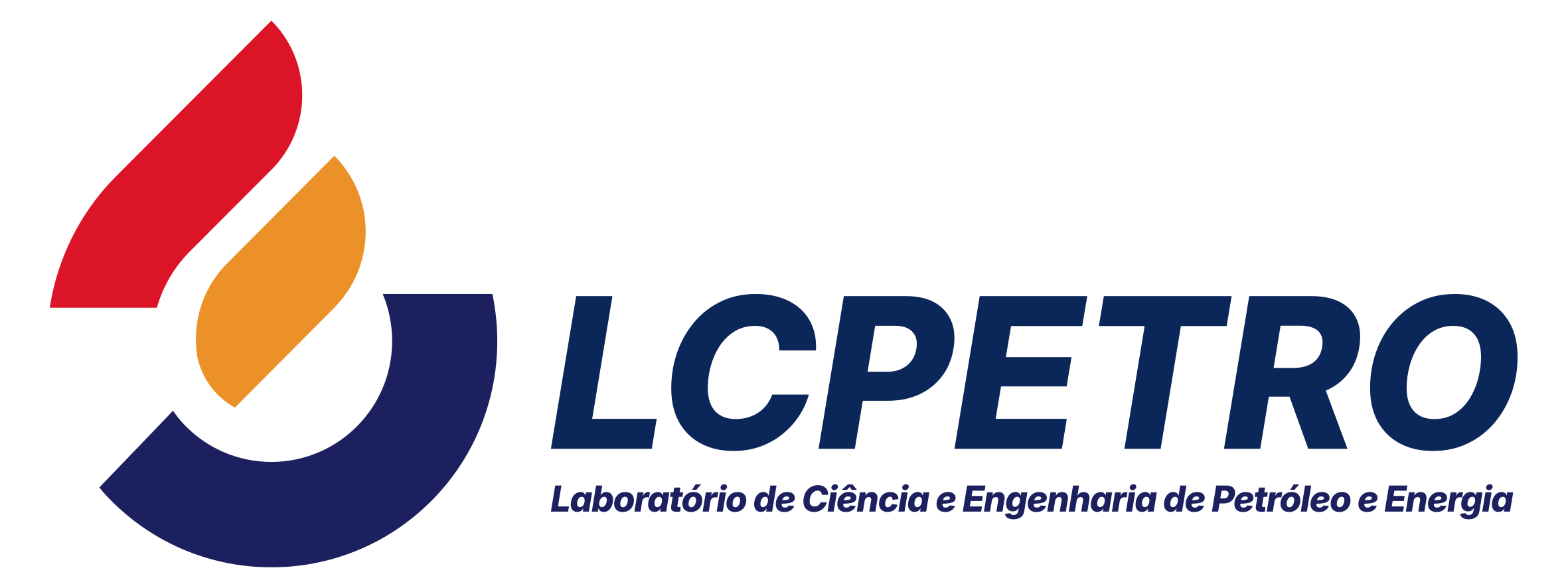 The Laboratory of Petroleum Science and Engineering at UFPA focuses on the study of fluids and porous media. Its research activities include fluid and porous media characterization (such as petrophysics and X-ray micro-computed tomography imaging) and the investigation of fluid–solid interactions. These studies involve both reactive and non-reactive transport, integrating experimental methodologies with numerical simulation techniques.
The Laboratory of Petroleum Science and Engineering at UFPA focuses on the study of fluids and porous media. Its research activities include fluid and porous media characterization (such as petrophysics and X-ray micro-computed tomography imaging) and the investigation of fluid–solid interactions. These studies involve both reactive and non-reactive transport, integrating experimental methodologies with numerical simulation techniques.
LCPETRO – UFPA https://www.linkedin.com/company/lcpetro https://www.instagram.com/lcpetro_ufpa
Contact: Pedro Tupã Pandava Aum pedroaum@ufpa.br lcpetro@ufpa.br
_____________________________________________________________________________________________________________________________________
Page in progress… Porous media researcher, to include your laboratory in this website, please contact anderson@lmpt.ufsc.br.





